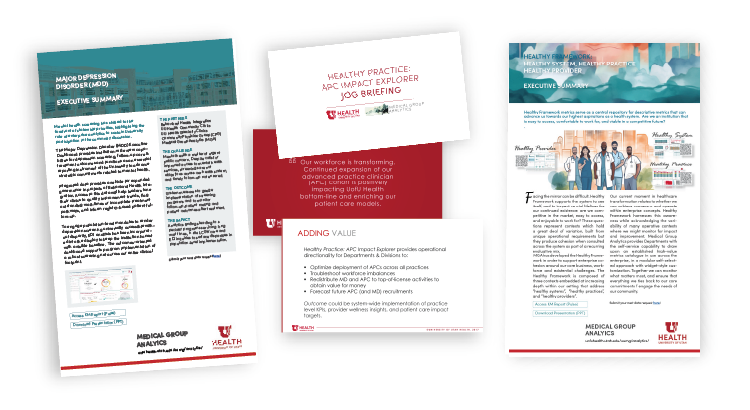
Clinical Analytics

Clinical Analytics
Clinical Analytics involves the evaluation and monitoring of clinical programs to enhance patient care and optimize outcomes. By analyzing performance data, we provide providers with valuable insights to support the implementation, assessment, and continuous improvement of clinical initiatives. Our work helps identify opportunities for enhancement, measure program effectiveness, and drive data-informed decisions that lead to better patient outcomes and more efficient clinical operations.

Featured Projects
Our clinical analytics projects focus on enhancing healthcare quality and efficacy through robust monitoring of projects like: antibiotic prescribing practices, system-wide depression screening rates, and comprehensive patient-reported outcomes.
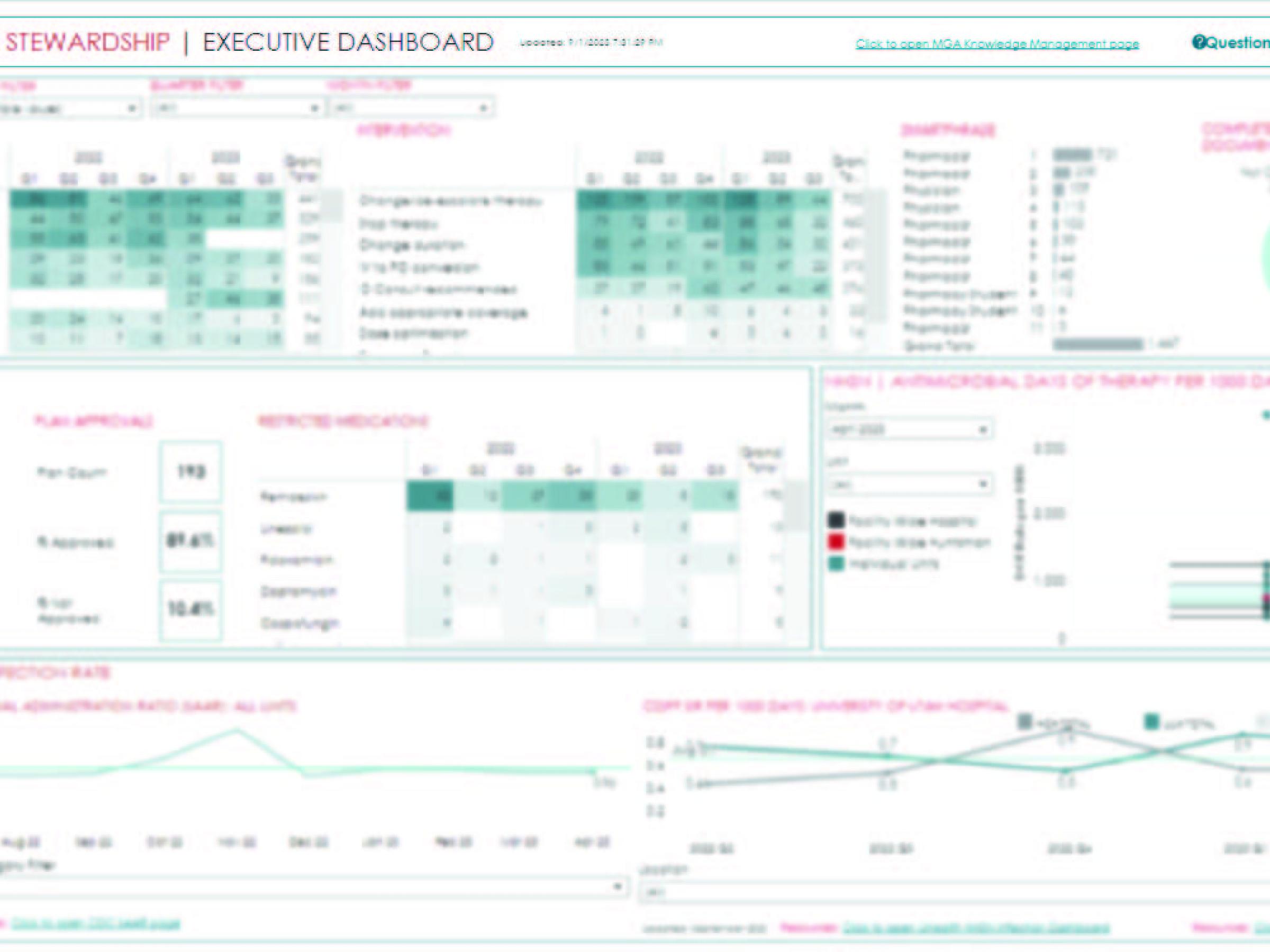
The Antimicrobial Stewardship Program (ASP) aims to combat antimicrobial resistance through optimized care pathways. MGA’s partnership with the ASP operationalizes electronic health record data to visualize trends in current prescribing patterns, track ASP initiatives and support UHealth's preparedness for DNV compliance and national standards.
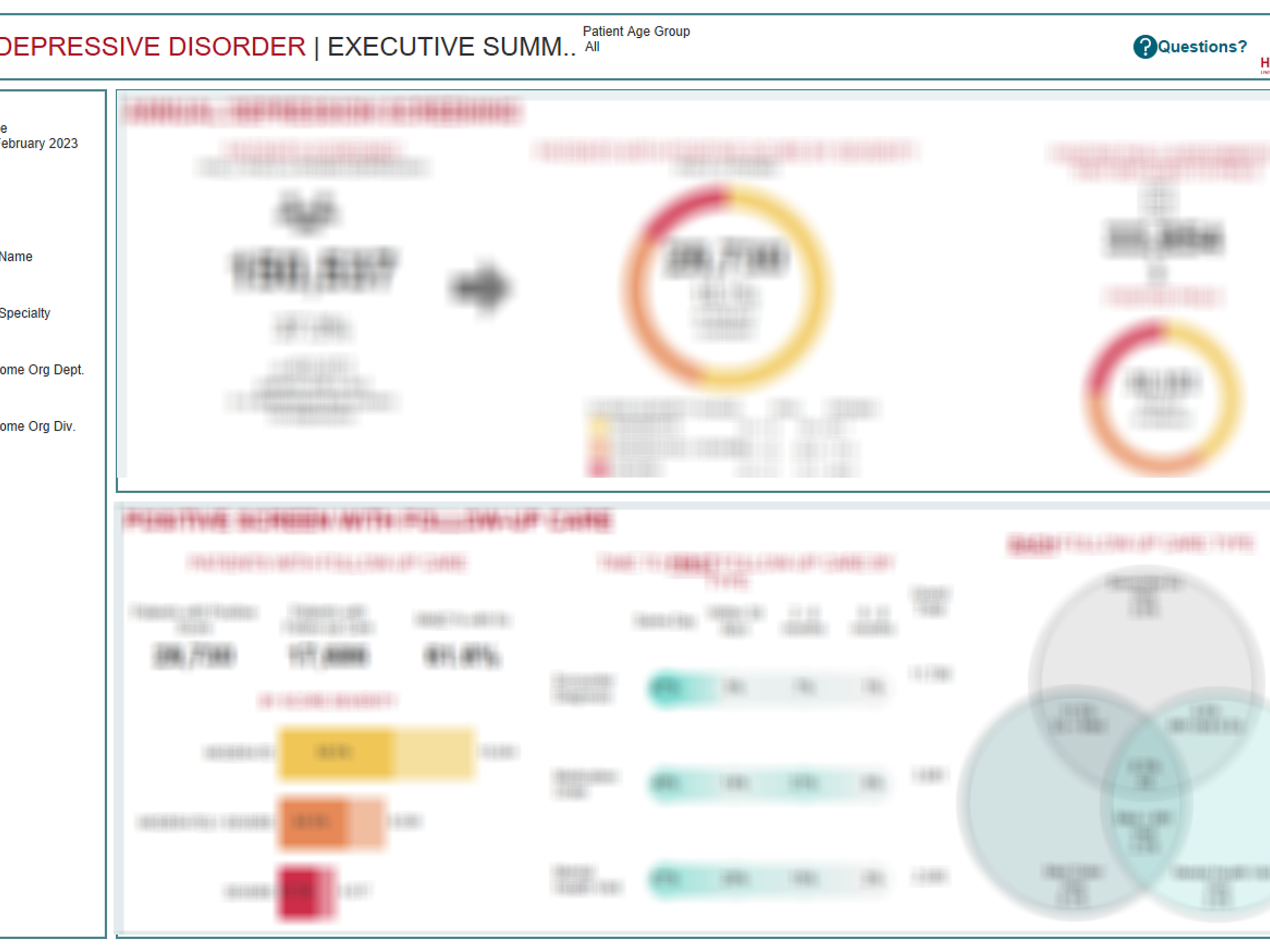
Mental Health access for patients in our community is a top priority for University of Utah Health. In partnership with Dr. Rachel Weir and System Quality, our reporting identified several care gaps in the screening and treatment of Major Depressive Disorder (MDD). Since that time, several patient care workflows have been identified and implemented to close those gaps.
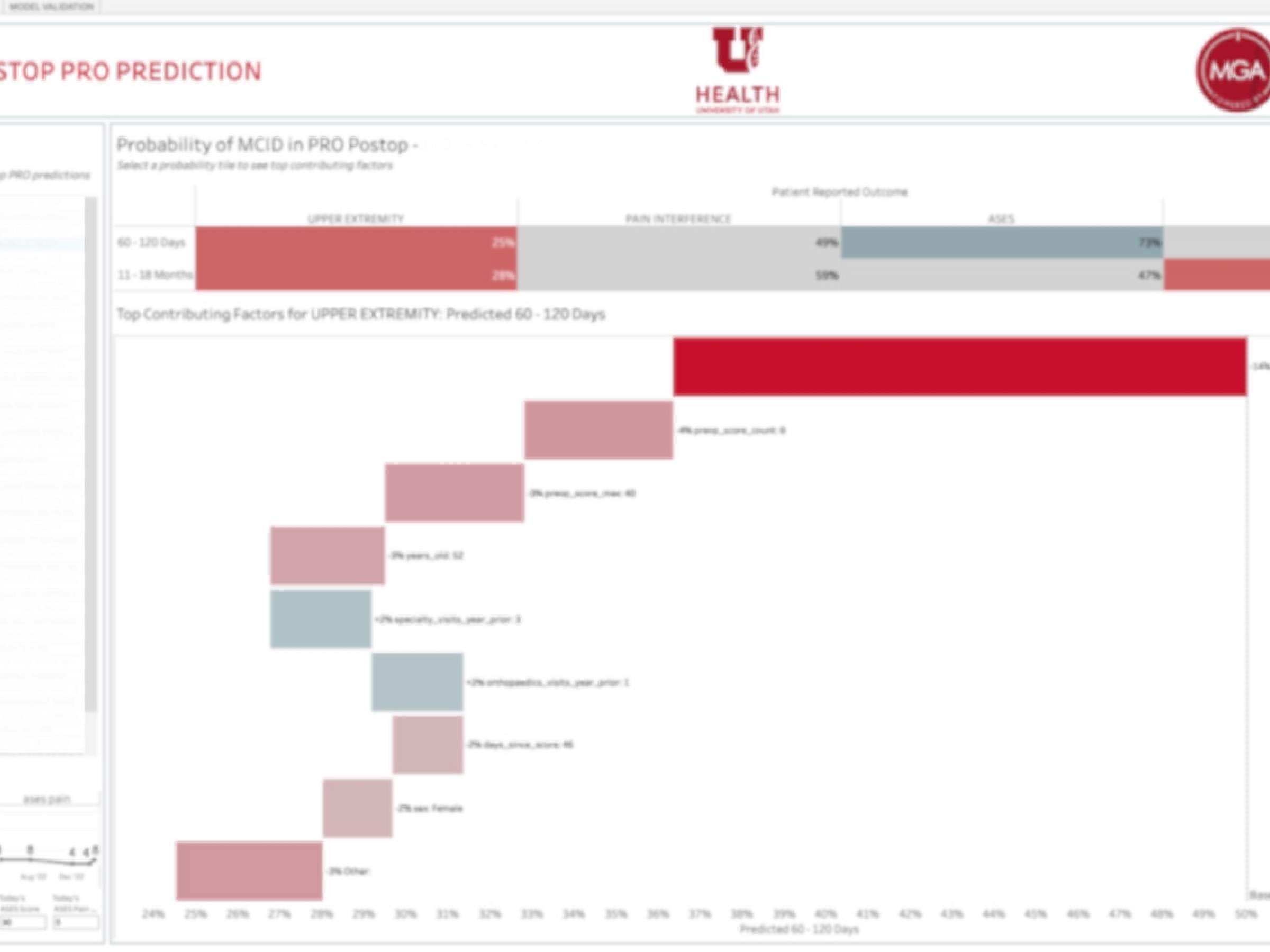
The Orthopaedic Post-op PRO Prediction tool harnesses Patient Reported Outcomes (PRO) data to enhance decision-making in upper extremity orthopedic surgery. Designed for use during pre-surgical consultations, this tool leverages a patient's current PRO scores along with demographic and other relevant factors to predict post-operative improvement. By visualizing influences that might positively or negatively impact outcomes, the Orthopaedic Post-op PRO Prediction tool supports in-depth, data-driven conversations between providers and patients, facilitating tailored and informed surgical choices.
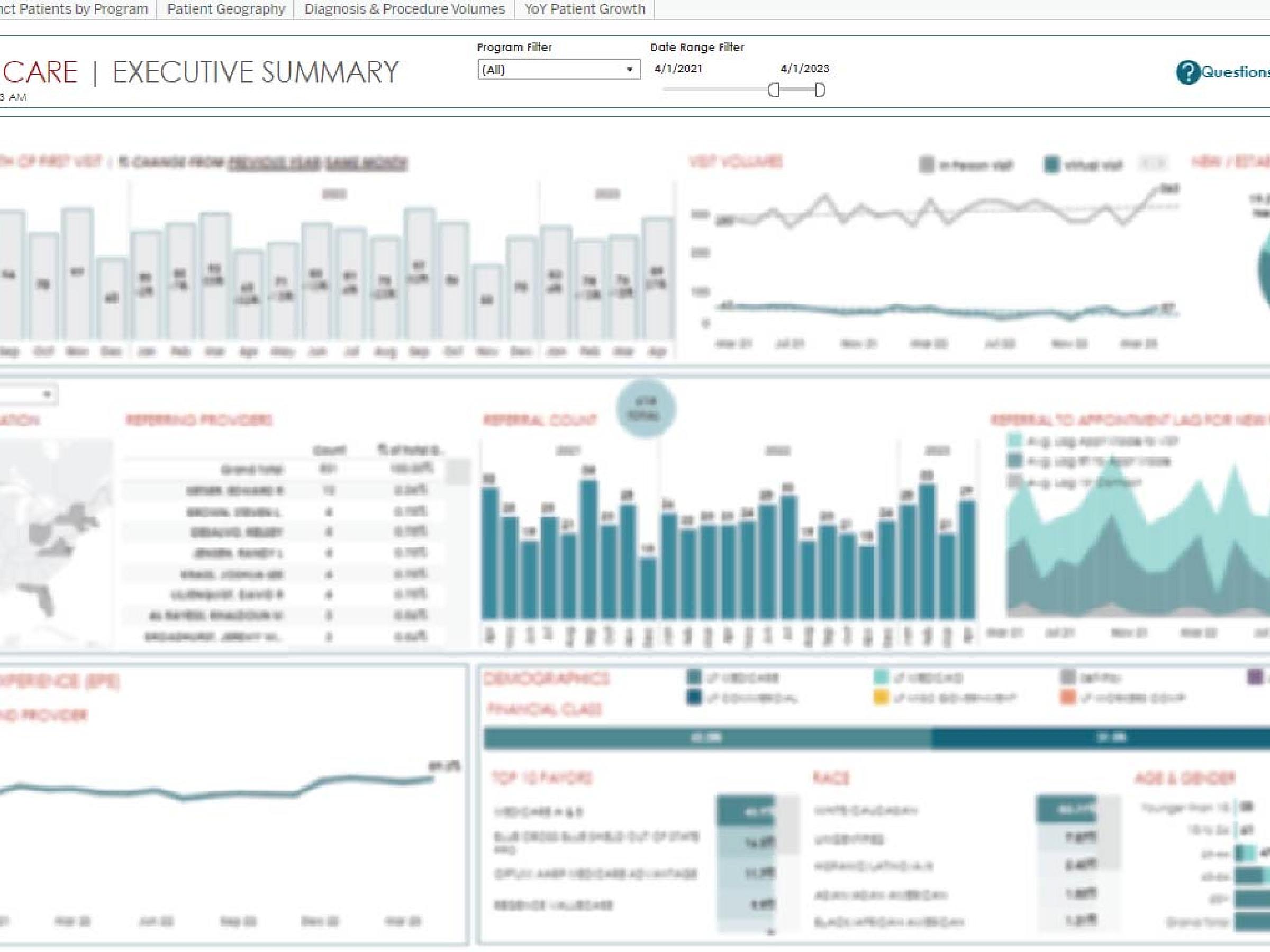
Destination Care enhances specialized programs at the University of Utah Health by facilitating coordinated, efficient, and comprehensive care. These programs not only offer unique services but also lead in innovation and technology, demonstrating proven clinical excellence and robust outcomes. Utilizing MGA’s geocoded insights, participating specialties can accurately identify patient origins, locate referring providers, and identify key areas for growth and expansion.
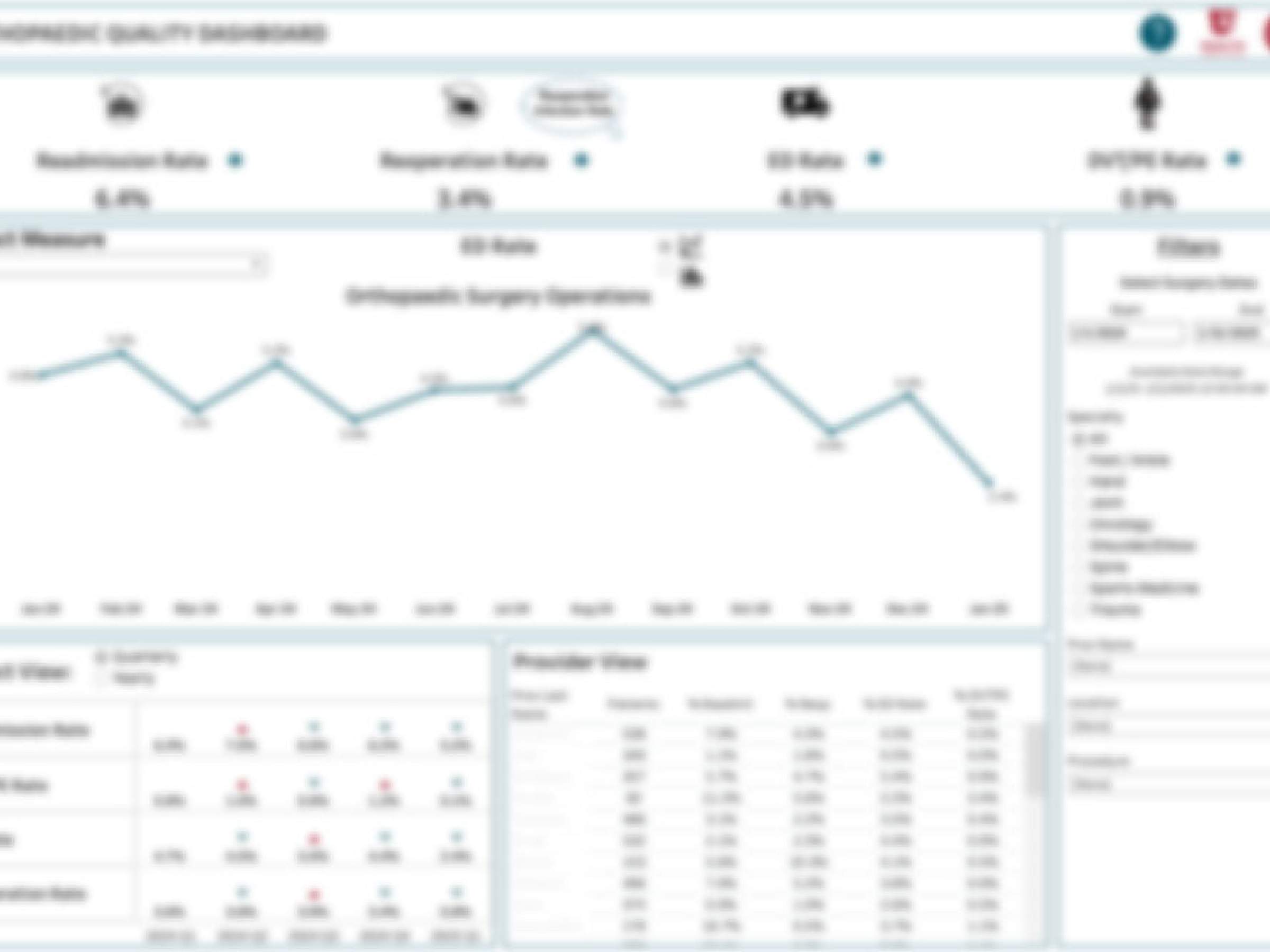
The Orthopaedic Quality Dashboard, developed in collaboration with Jill Erickson and Dr. Chris Pelt from Orthopaedics, is a strategic tool designed to enhance surgical outcomes and uphold high standards of care. This dashboard systematically displays and tracks adverse events such as readmissions, emergency department visits, re-operations, and thromboembolic events post-surgery. It offers detailed breakdowns by surgeon, division, and department, allowing for comparative analyses across these categories. The primary objective of the dashboard is to enable surgeons to review their data and identify trends over time, thereby facilitating best practices and optimizing patient outcomes in orthopaedic care.
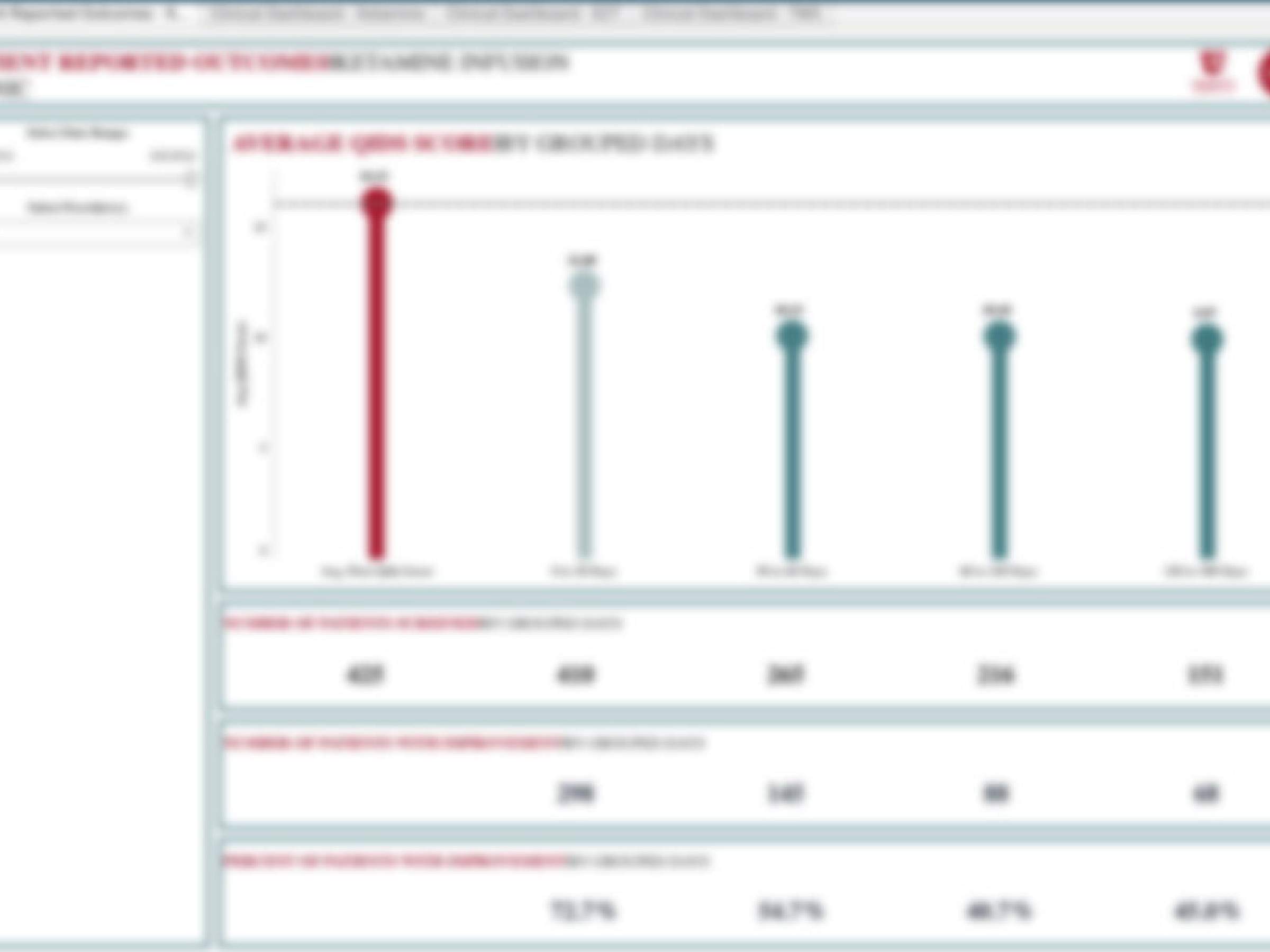
The TRMD Clinic Dashboard spearheaded by Dr. Jeremy Kendrick and Jackie Benseler, RN utilizes a Tableau dashboard to monitor ketamine infusion treatments at the Huntsman Mental Health Institute. This project focuses on patients with treatment-resistant major depression (TRMD), highlighting ketamine's rapid antidepressant effects, especially for severe cases and those with suicidal ideation. Additionally, the dashboard considers other TRMD treatments like Electroconvulsive Therapy (ECT) and Transcranial Magnetic Stimulation (TMS), enhancing provider support and patient care through real-time data.




MGA’s help to build a system wide dashboard to assess depression screening rates and follow-up outcomes makes it possible for my team to present data to leadership about our impact on patients’ mental health.
Did you know?
Medical Group Analytics maintains an archive of its past work. Keeping careful record of a project's documentation and the stakeholder process forms our practice of Knowledge Management.
We view collections of our past work as a bridge to future conversations with customers who see a match between MGA and their evolving analytics questions.
MGA's archives located on the University intranet "PULSE" are an important means for customers to review our wrap-around analytics capabilities at University of Utah Health. We hope you’ll select Medical Group Analytics for your future work.
